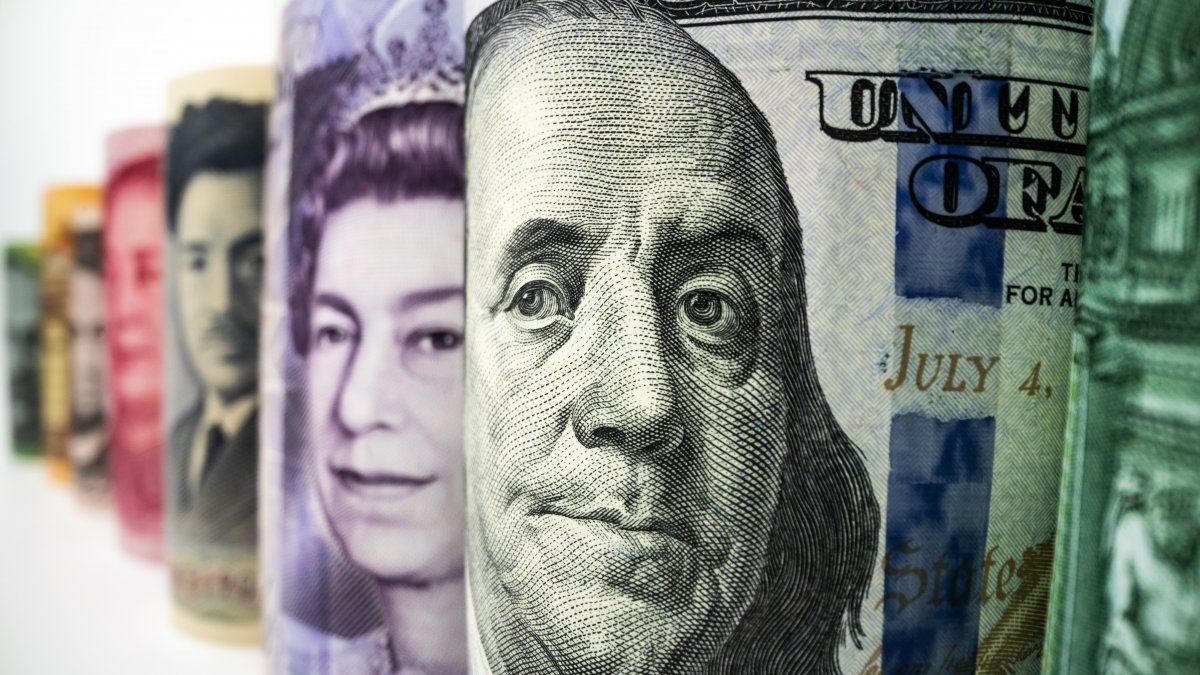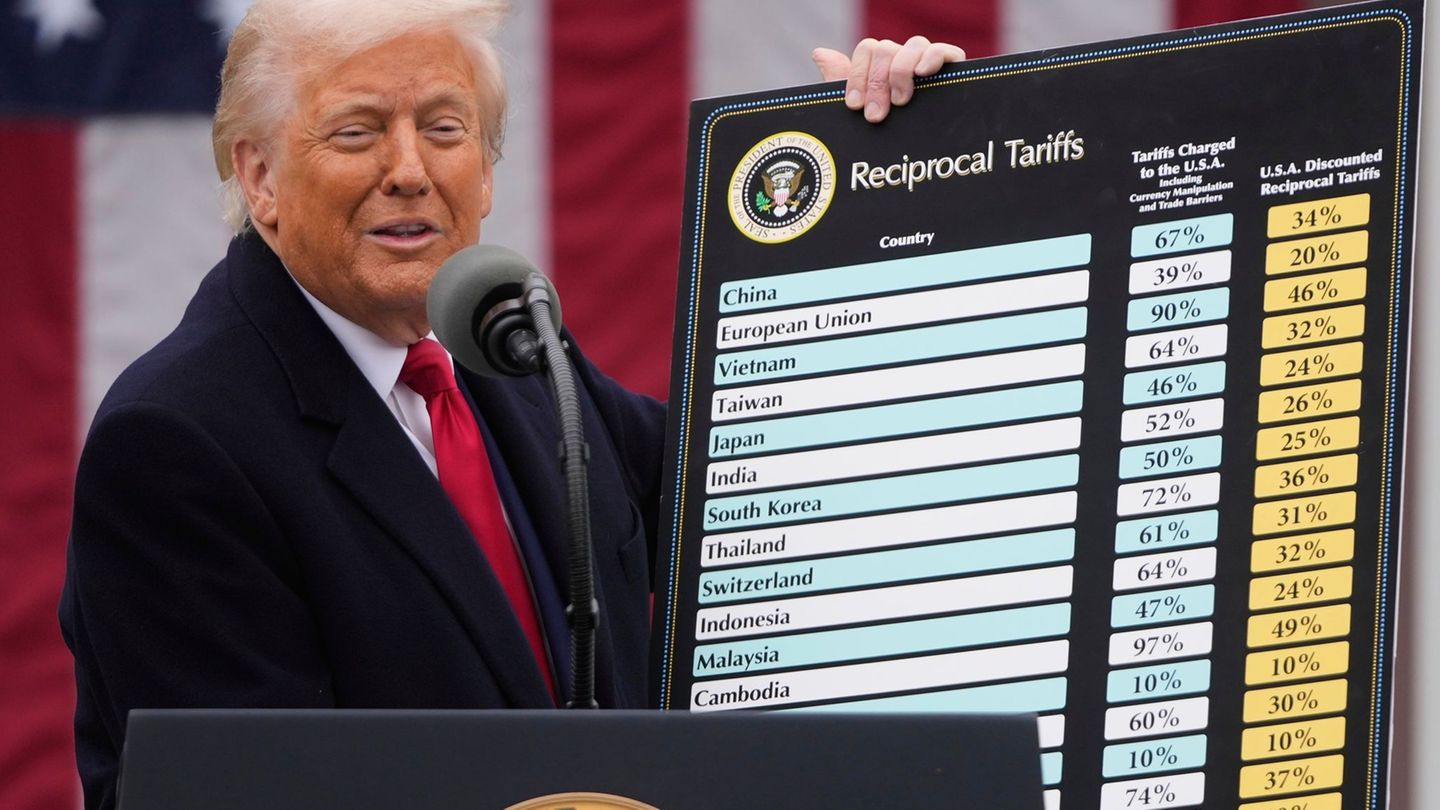The dollar is the G10 currency with the best performance so far this year and its strength against its peers leaves no room for doubt. Furthermore, it could expand if two factors occur: expectations about US interest rate cuts and increased geopolitical tensions. Such a scenario could affect the risk ratings of emerging markets.
The Dutch bank’s experts Rabobank explain why these two elements could support further increases in the dollar. Regarding expectations about the Fed’s interest rates, they point out that since the beginning of the year, the market has already substantially reduced the number of cuts planned in 2024, but If expectations are reduced further, this will strengthen the dollar for longer.which would also influence the monetary policy decisions of other central banks, since the Fed usually acts as a guide.
Market expectations for the depth of the Fed’s easing cycle are faltering, say analysts at the Dutch bank, who believe the US central bank’s easing cycle could stop by the middle of next year.
Regarding the geopolitical factor, Rabobank experts warn that if tensions increase, especially in the Middle East, that would benefit the dollar due to its status as a safe haven, and although the currency market does not yet reflect an increase in concerns, they would expect The dollar will benefit from any worsening of geopolitical newswhich would affect, for example, parity with the euro.
But the strength of the dollar has another aspect or rather an implication that directly affects emerging markets, as the rating agency recently made clear. Fitch Ratings which believes that a sustained period of dollar strength against emerging market currencies could weigh on some sovereign credit profiles, potentially softening the current positive ratings momentum.
fitchrated_sovereigns_with_high_levels_of_external_government_debt.jpg
“Those most at risk in such a scenario would be sovereign states that experience large and lasting depreciation against the dollar or large declines in international foreign exchange reserves, and that have a large proportion of their debt denominated in foreign currencies.”they explain from the rating agency.
In this regard, they recall that historically, the nominal effective exchange rate of emerging market currencies against the dollar has been strongly correlated with the sovereign ratings of these countries, and a stronger dollar is associated with weaker credit profiles of emerging markets. . “We believe this relationship is likely to remain strong in 2024-2025 if the dollar experiences a period of sustained strength.”
“The ratings of emerging commodity importers and smaller, frontier emerging markets remain significantly weaker than before the pandemic, so some credit profiles may have room to improve as the economic and fiscal scars related to “The pandemic fades and global activity returns to normal,” adds Fitch.
The rating agency highlights that the exchange rates of emerging countries also remained relatively stable against the dollar in the first four months of 2024, compared to the greater appreciation of the dollar against some developed market currencies, including the yen and the Swiss franc. They explain that this contributed to the overall strength of emerging market prospects. “Even so, “Several emerging market currencies weakened somewhat during the quarter, including the real and some Asian currencies.”
Fitch’s baseline assumption remains that US Treasury yields will fall over 2024-2025 as the Fed begins to cut rates, which should allow more emerging currencies to appreciate against the dollar. “However, the resilience of the US economy and, in turn, persistent inflationary pressure there have highlighted risks to this outlook. If rates in the US remain at a high level or rise further, this could result in sustained dollar strength, with possible adverse consequences for some emerging market credit profiles,” he warns.
In this sense, Fitch recalls that emerging sovereigns with higher percentages of debt denominated in dollars are more exposed to exchange rate risks, since depreciation against the dollar increases the burden of debt payment in local currency terms. “External public debt exceeded 50% of GDP in 2023 for 9 emerging sovereigns rated by Fitch (all in the speculative category of rating B or lower) and exceeded 30% for another 27”.
“In general, we believe that larger and sustained devaluations are accompanied by a greater danger of social and economic instability, particularly linked to the inflationary effects that accompany it. Consequently, the risks to sovereign credit profiles may be greater, with large-scale depreciation episodes lasting a year or more,” the rating agency warns.
At the beginning of May, several emerging markets rated by Fitch had experienced a year-on-year depreciation against the dollar of more than 30%, including Angola (B-/Stable), Argentina (CC)Egypt (B-/Positive), Nigeria (B-/Positive), Turkey (B+/Positive) and Zambia (Restricted Non-Compliance).
“However, there may also be considerations that mitigate the impact, for example, when depreciation is the result of broader economic adjustments that improve long-term economic prospects, or is a condition for financial support from the IMF or other lenders. These considerations contribute to the positive rating outlooks for Turkey, Egypt and Nigeria,” Fitch notes.
Source: Ambito




